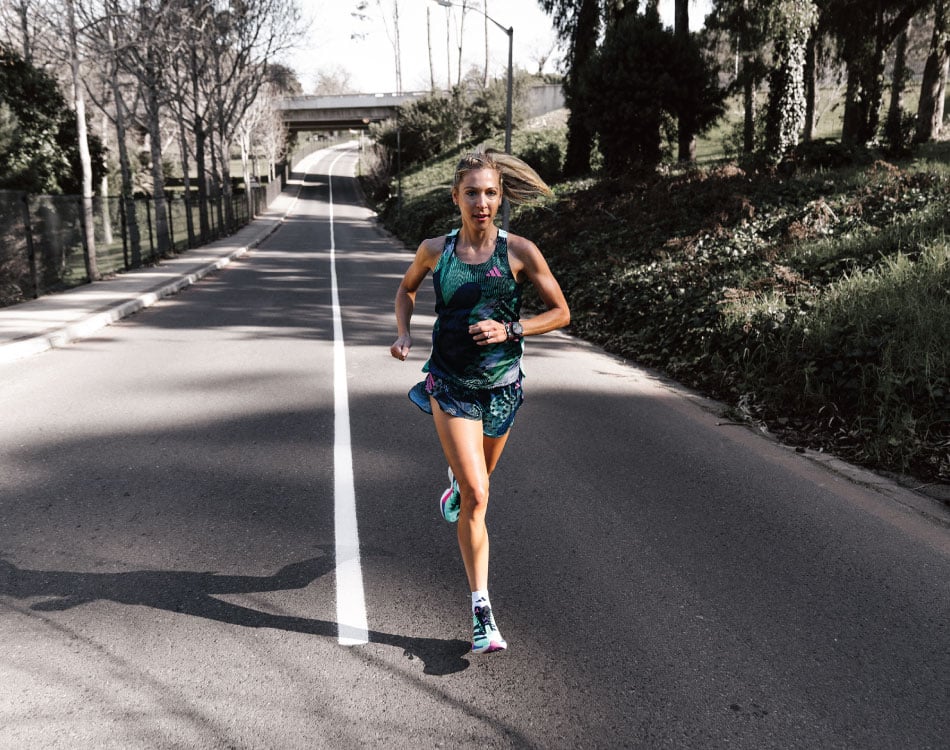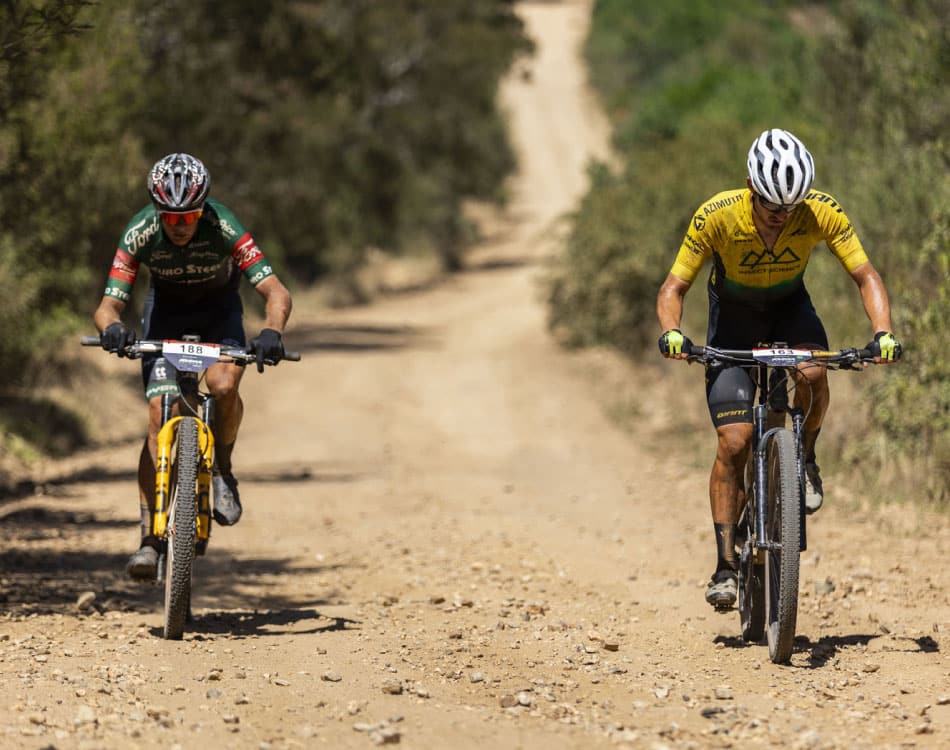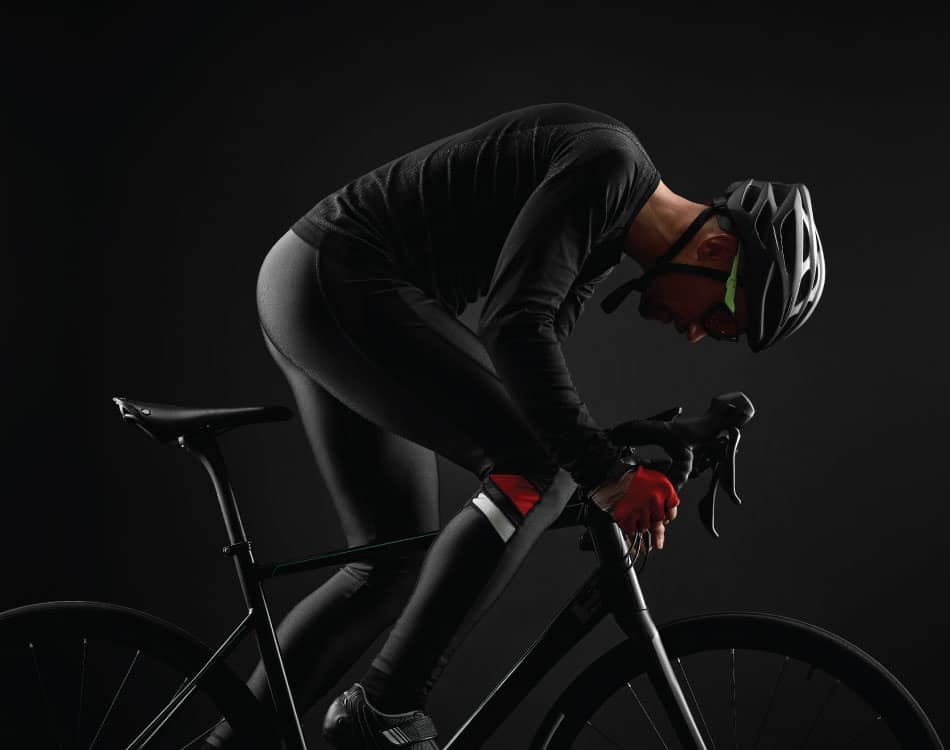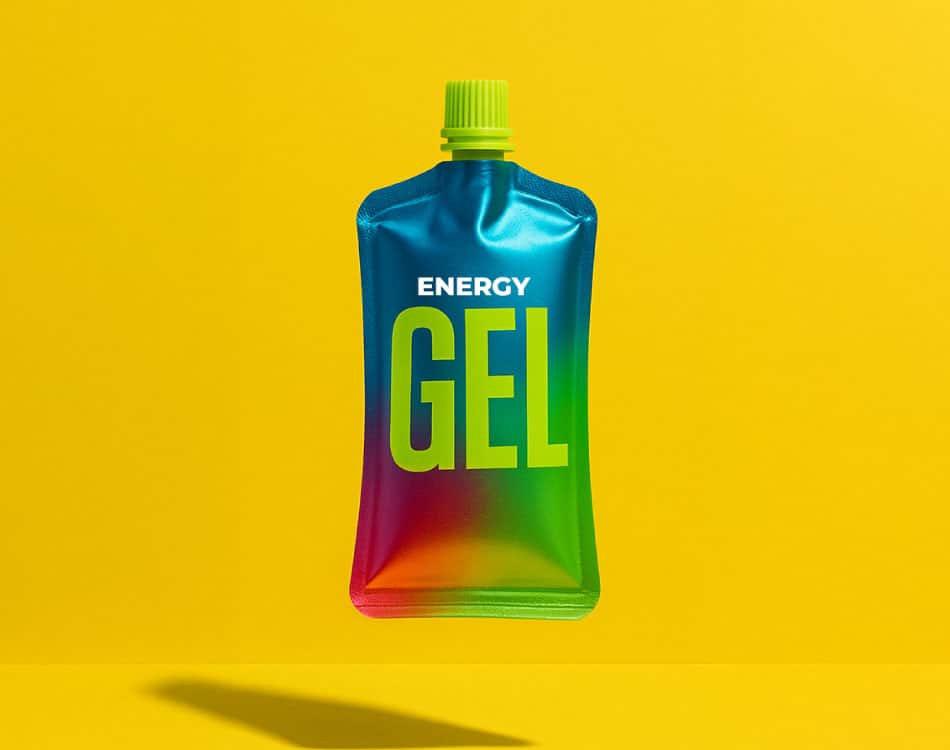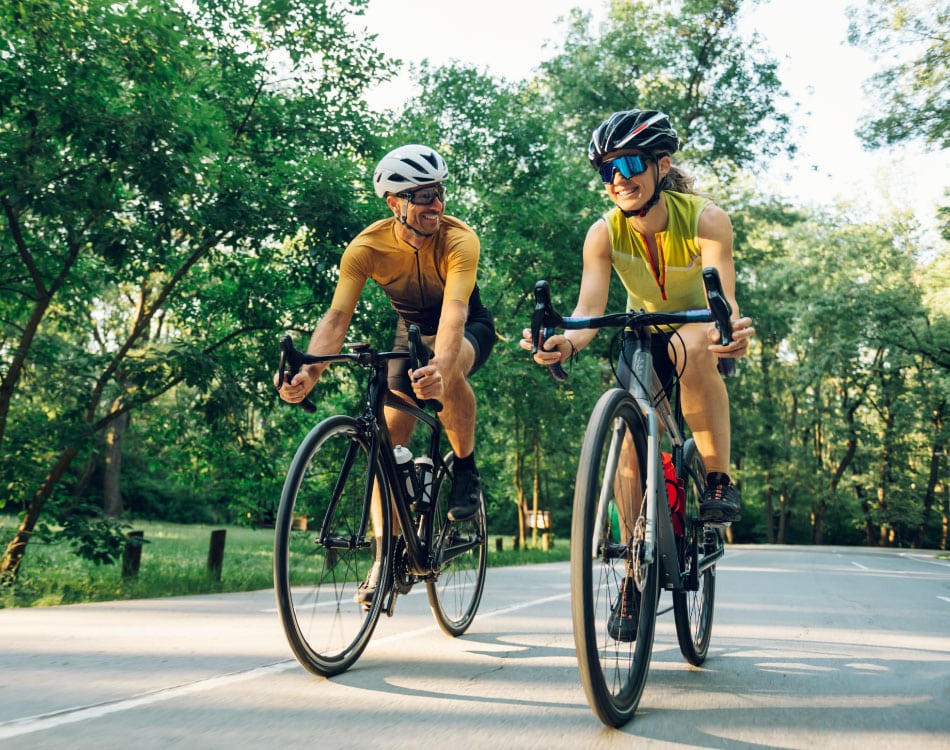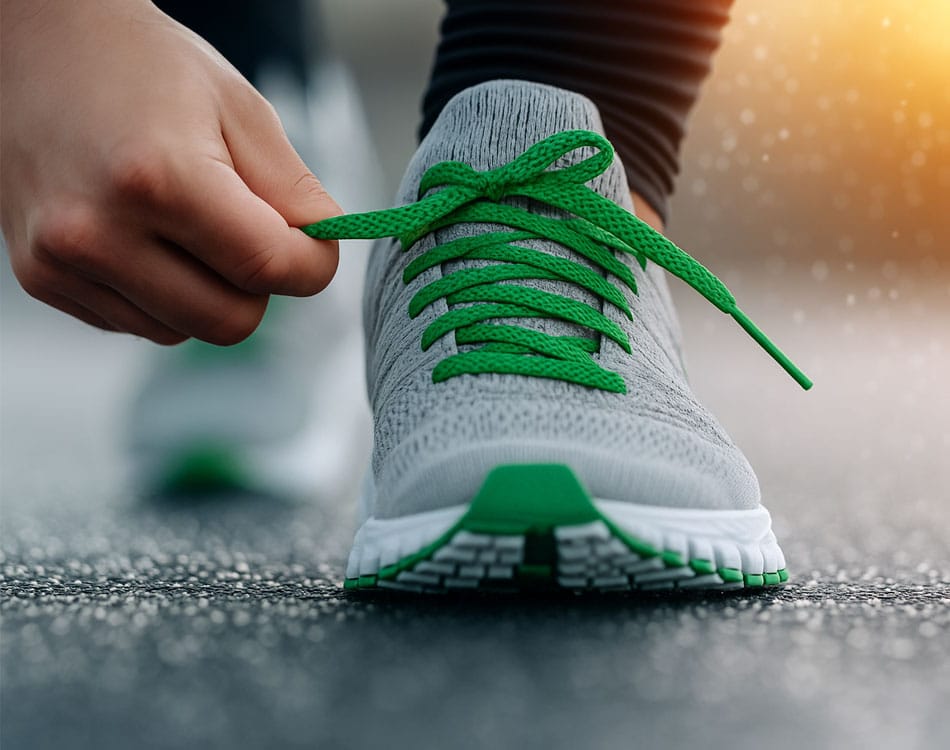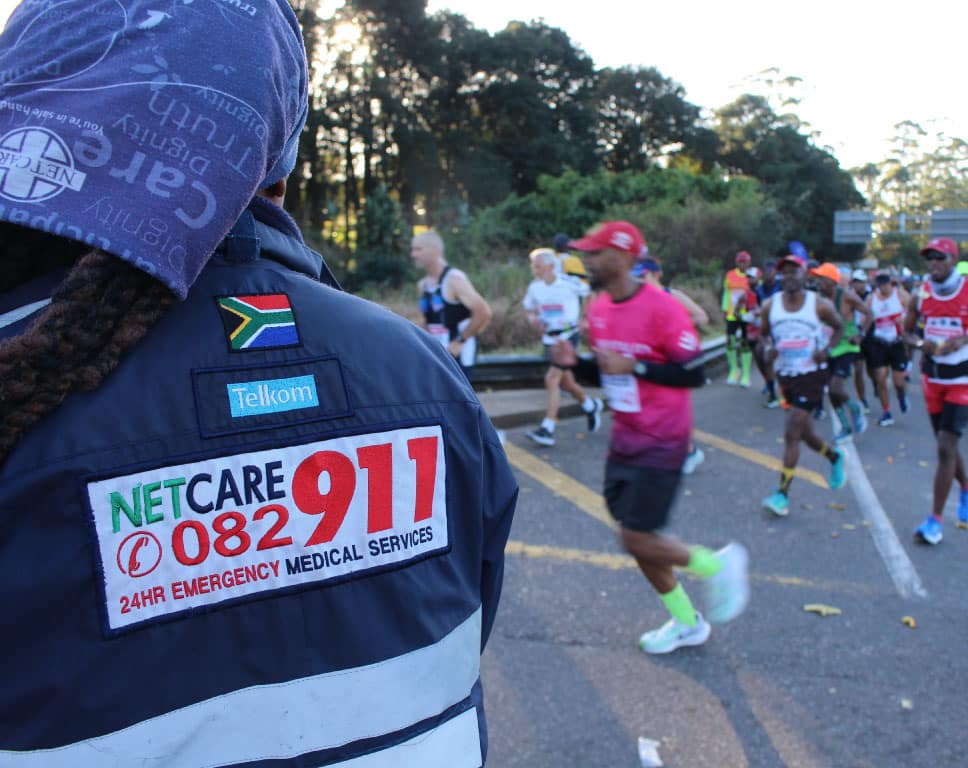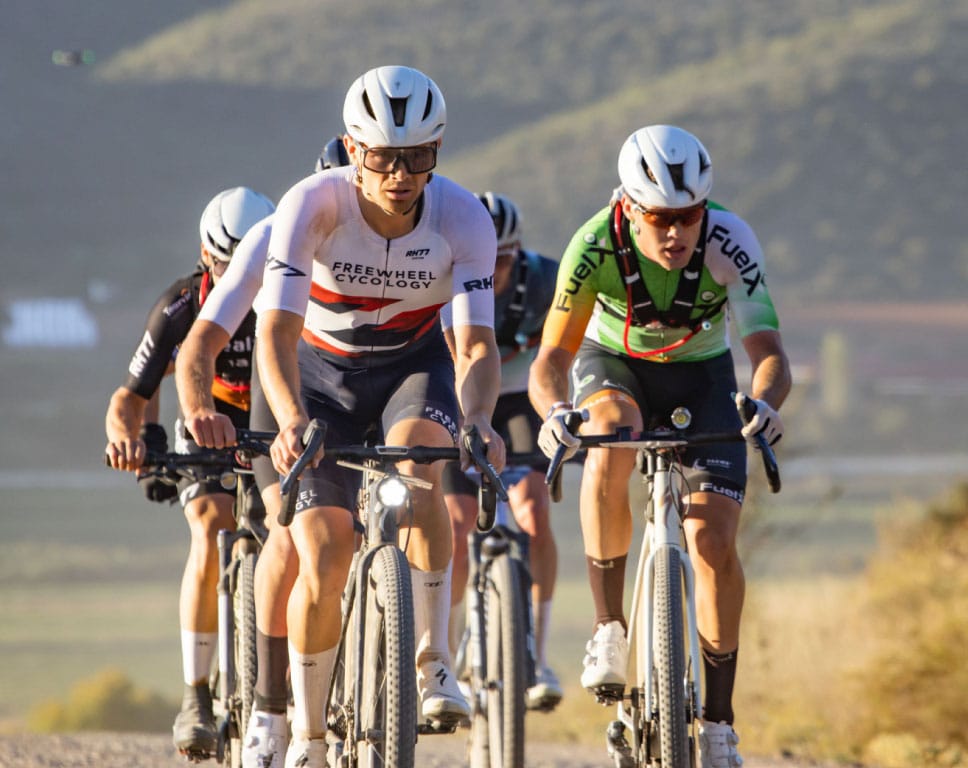Gerda Steyn’s secret to ultra-running success is simple. She loves to run. Everything about the process involved in constantly improving your previous best captivates her, from the planning, programming and preparation to every training session and the race-day experience.
And with almost eight years of meticulous notes from every training session and race she has run since 2016, Gerda took the bold decision to take charge of her training without the guidance of a coach in 2022, with spectacular results.
READ MORE | More training isn’t always better for ultra-endurance athletes
SA’s new record-breaker
Gerda learnt a lot from her previous coaches – Nedbank Running Club Manager Nick Bester and Andrew Booysen – and achieved amazing success.
While working with Nick, Gerda broke the Comrades up-run record in 2019, becoming the first woman to run under six hours by crossing the finish line in 5:58:53.
She also set the unaided SA female marathon record at the Xiamen Tuscany Camp Elite Marathon in Siena, Italy, with a time of 2:25:28 on 11 April 2021, beating the previous record set at the Berlin Marathon in 1996 by Colleen de Reuck (2:26:35).
She went on to represent South Africa at the Olympic Games in Tokyo that year, placing 15th on a tough course in difficult conditions to realise a life-long dream of becoming an Olympian.
She then broke the Two Oceans record in 2022 while training under Andrew, overcoming a late dip in energy levels to regain the lead in the final kilometres and surge to a new record of 3:29:42, making her the first female athlete to break 3:30:00.
Blazing her own path
However, following a challenging transition year in 2022, Gerda took the bold decision to blaze her own trail and do things her way.
“I took a long, hard look at my situation and decided to go it alone. Arriving at that decision was really scary. You get used to what works and there is a great deal of uncertainty that comes with change, but I took it one step at a time,” recalls Gerda.
She first left the Nedbank Running Club to join adidas and once she felt settled, decided to work with a new coach.
After trying a few different approaches and spending time figuring out what works and what doesn’t, Gerda realised that she knows exactly how to get the best from her training.
“Change can be uncomfortable, but I have learned not to be afraid of change when needed because that is how we progress in life,” continues Gerda.
Backed by the support from the team at adidas South Africa, who allowed her to do her job in the best way for her, Gerda started putting the puzzle pieces together with her own approach and she has never looked back.
Racking up more records
The decision to do it her way has paid off, big time! Gerda returned to defend her titles at Two Oceans and Comrades in 2023 as a self-coached athlete, breaking the record she set the year before in Cape Town, running 3:29:06, while adding the down-run Comrades record to her palmarès in a time of 5:44:54.
But Gerda wasn’t done. A self-coached marathon block followed after she had recovered from her spectacular Comrades win. Gerda flew to Spain in December 2023 to take on the fast and flat Valencia marathon in a standard unaided race (women run alongside men).
As a perfect day came together, Gerda broke one of the oldest running records in South Africa when she crossed the finish line in 2:24.03, improving on the previous mark of 2:25.14 set by Elana Meyer in Boston in 1994 (Mayer’s record was not ratified as it is run on a net downhill course).
Gerda not only kept the momentum going but took her running to another level in 2024 with two of the most dominant performances of her career.
Gerda blew away a highly competitive field at Two Oceans, knocking over two minutes off her record with a time of 3:26:54 and bettered her Comrades up-run record by more than 10 minutes, finishing in 5:49:46. She also became a double Olympian after completing the marathon at Paris 2024.
Do what you love, love what you do
Gerda is not the first and only athlete to embrace a self-coaching approach. Other wildly successful runners include Steve Prefontaine, Emil Zatopek and Arthur Lydiard, with the latter pioneering a training method still used today (the Lydiard Method).
However, Gerda is the first to admit that defining her own path hasn’t always delivered the results she wanted.
“After Two Oceans in 2022, I chose to focus more on the marathon distance, which I don’t think was the best decision in hindsight. I missed out on Comrades that year and ran my worst times,” recalls Gerda.
However, that experience taught Gerda an important lesson and one that anyone who wants to take the self-coaching route should always remember.
“When no one is there holding you accountable, you need to be truly passionate about what you do, and for me, that’s training for South Africa’s road ultras.”
By emphasising the psychological side of her running, Gerda is fuelled by a commitment to doing what she loves most, which is all the motivation she needs to get out for every training session.
Planning her training
Armed with her meticulous hand-written notes from over eight years of training and racing and the insights and experience from her previous coaches, Gerda now plans all her training blocks.
“I think it would’ve been difficult not having the experience from the other coaches. I still follow a similar structure and include a lot of the workouts I know have worked for me in the past. In this way, I haven’t reinvented the wheel, I’ve just built on what works and fine-tuned my approach.”
Gerda says Duncan, her husband, is a good sounding board and helps her confirm that her proposed approach is right.
“Duncan knows me better than anyone else. He can pick up on things really quickly and will give me honest feedback if I am pushing too hard, need more rest or might need a few extra workouts. I trust his opinion and insights and, more importantly, his input means I don’t feel like I’m on my own in this.”
Her results and records in 2022, 2023 and 2024 have given Gerda a lot of confidence and confirmed that she has found the right formula.
“There is a time and place for a coach but I value the flexibility to train my way right now and take a more intuitive approach. If I feel strong, I will run longer or faster. Or, if I need more rest, I take it. I listen to my body and respond to those signals.”
Gerda says the biggest change to her training has been a shift to higher volumes, with a focus on consistency over intensity. After becoming a full-time athlete, Gerda followed a cross-training approach, running in the morning and heading out on hikes or rides in the afternoon.
“I have now decreased the amount of cross-training I do and get in more mileage with double run days. It has taken a long time to get my body strong and conditioned enough to handle the higher mileage, and I still cross-train for strength, but to a lesser degree.”
Within this higher volume approach, Gerda says she is mindful to keep her high-intensity sessions in check.
“I do lots of easier zone 1 and 2 running. My recovery runs are very slow and my easy runs are really easy.”
While Gerda trains mainly on feel, she always analyses the stats from her Garmin to track metrics like her average and peak heart rate afterwards.
“I like to analyse all my runs. While you can’t always compare apples with apples and can get caught up in analysis paralysis if you’re too reliant on the data, it’s an important aspect in gaining deeper insights and knowledge about yourself as an athlete. I think it is the only way to coach yourself successfully.”
Gerda also uses races or time trials on the same course to measure her progress and benchmark her fitness.
“It is not always easy to do the same workout at the same time of the year in the same place as I travel a lot, but taking my performance across a range of workouts and comparing them to previous years helps to benchmark my progress and improvement over time.”
Over the years, Gerda has refined this approach and knows what works best for her, with her training sessions a key indicator of her readiness to break another record.
“It has been a very interesting and fulfilling journey as a self-coached athlete. The most important lesson I’ve learnt is to be alert and in tune with my body and what I am doing.
“My training still has structure and everything has a process and method behind it – it’s not random – but I remain open to learning and trying new things to keep tweaking my approach in my quest for even faster times.”
You can follow Gerda’s progress in 2025 as she plans to defend her Two Oceans and Comrades titles, with her ultimate aim to set new records every time she lines up at these iconic events.
“I still feel I have more records in me. I will keep looking to see where there is room for improvement, or sections or areas where I can make up time. Beyond that, I will keep running Comrades for as long as I can, even after I am no longer a contender. It is such a focal point of my life and has such a special place in my heart as a runner. We’ll see if a double (20+ finishers) or maybe even a triple (30+ finishes) green number is possible,” she laughs.

